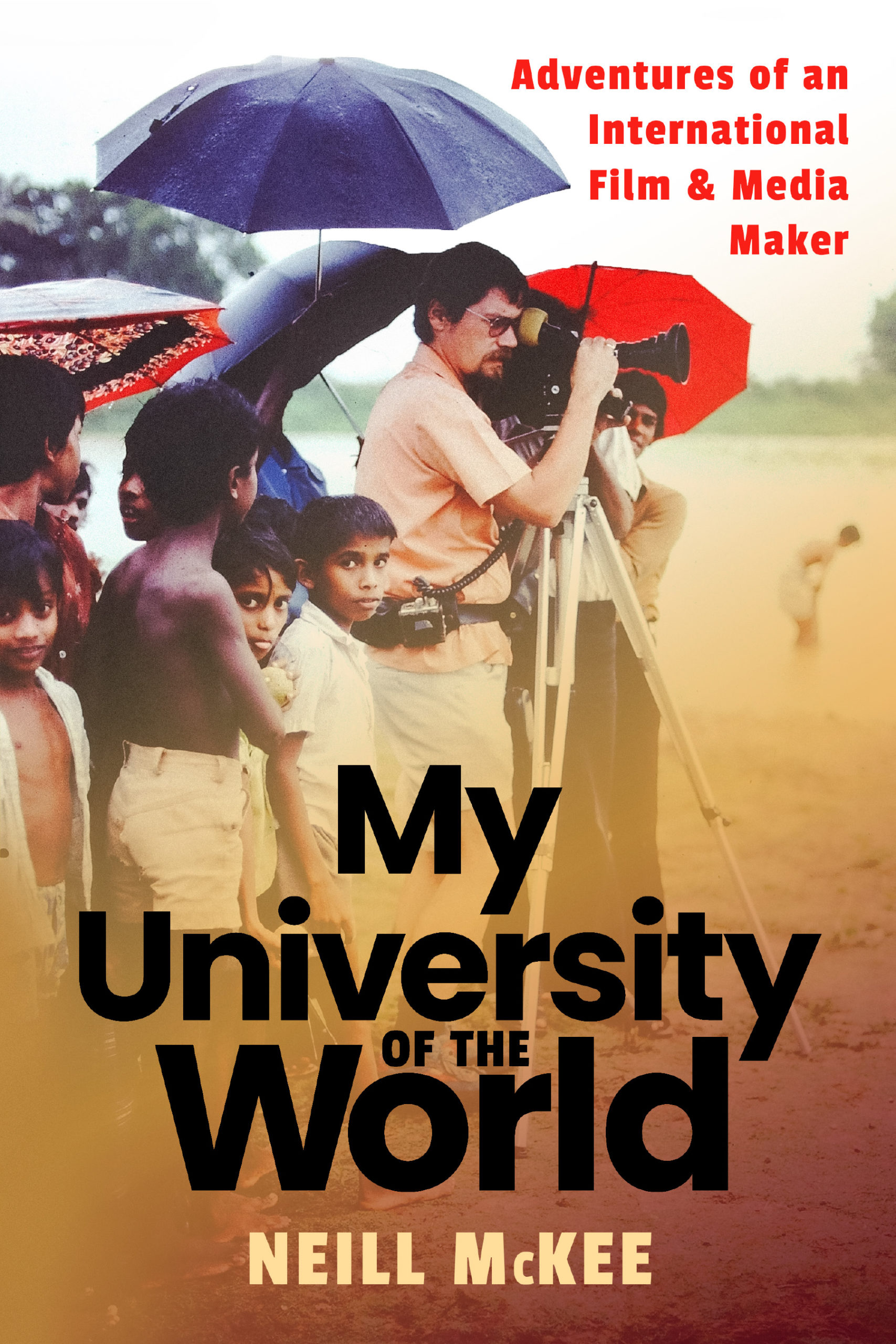Today I’m excited to have Leslie Cox on my blog, sharing her thoughts about Neill McKee’s memoir MY UNIVERSITY OF THE WORLD. Take it away Leslie!
Neill McKee has taken me along on his journey in, My University of the World. His travels extend beyond those of many readers—North America, South America, Asia, Africa, and the list goes on. But this is more than a travel guide. It is a story about humanitarian efforts extended to the people of developing countries by an army of volunteers, and what can be learned from various cultures. Those volunteers provide resources and training to aid in the development and growth of areas in poverty, especially rural areas, while respecting the customs and traditions of inhabitants. Some of the life challenges experienced are unfathomable to someone like me who doesn’t get out much. So, what’s great about this book is I can try to understand other civilizations while sitting in my favorite chair.
The author is a filmmaker, capturing videos and photos (many are included) of the work that is extended to underdeveloped countries. Those volunteers are educators, medical professionals, technologists, agriculturalists, and all-around life-giving humanitarians. McKee gets up close and personal to film them in action—educating villagers about nutrition, sanitation, and hygiene. They advise farmers on securing adequate food storage methods to prevent waste. Technology is introduced, for example, to help make life a little easier for African women.
Of the many interesting anecdotes shared by McKee, one of my favorites involves the teaching process in primary schools in the Philippines. The typical classroom structure is replaced with a comfortable environment where students are divided into small groups for peer-to-peer learning. A teacher is there to assist, but there is less pressure on the process, so the children are inspired to learn.
There are plenty more anecdotes, some of them humorous and others eye-opening. Throughout, the reader will experience a good dose of history, geography, and also learn a little about what goes into good filmmaking. I was able to relate with much of this as it spans the time period when I was coming of age in the 70’s and beyond—the music, the styles, and “pre-internet” survival. I was familiar with the segment on copper mining as I grew up in a copper-mining environment. The farthest place I’ve traveled is Africa where my daughter studied for a semester, so the stories told there were of particular interest to me.
This book has a little bit of everything through its nearly 500 pages—even romance! McKee shares the love story of meeting his wife, Beth, and how they survived a long-distance relationship and engagement by communicating mostly via snail mail. Beth introduces herself to Neill’s parents in a letter, I believe while she was living in Japan, with a poem and drawing. They immediately loved her. And finally, the reader meets the McKee children, Derek, and Ruth who have lived this life of adventure and have become successful adults.
So, when you are ready to take a trip around the world while being entertained, pick up this book and dive in. You can also learn more about the author at: www.NeillMcKeeAuthor.com.
Review by Leslie Cox (www.lesliesvoice.com)
About the Book:
Neill McKee takes us on an entertaining journey through the developing world from 1970 to 2012. The story starts when he becomes a “one-man film crew,” documenting the lives of Canadian CUSO volunteers working in Asia and Africa as teachers, medical doctors, nurses, engineers, agriculturalists, foresters, and a biologist. He learns the craft of filmmaking and meets and marries Elizabeth “on the hoof.” The story is enlivened throughout by their challenges and adventures together, and Elizabeth’s growing artistic talent and creations.
Beginning in 1975, the young couple settles in Ottawa and starts a family, while Neill roams the world for Canada’s International Development Research Centre. His award-winning films depict the agency’s philosophy and search for solutions to problems in agriculture, forestry, fisheries, aquaculture, education, health, water and sanitation, and more. Then in 1990, McKee joins UNICEF in Bangladesh, and later in Africa, where he initiates long-lasting multimedia programs for child health, with a focus on empowering girls. In 2001, he moves to Johns Hopkins University, Baltimore, USA, and then to Moscow, Russia, where he oversees similar initiatives. That experience leads him to a memorable last post in Washington, D.C. as director of a large global communication project.
Throughout the short chapters and in a brief epilogue, McKee reflects on the long-term impact of the projects he documented and of his media creations. His memoir is filled with compelling dialog, humorous and poignant incidents, thoughts on world development, vivid descriptions of people and places he visited, and many images, all of which bring readers into his “University of the World.”
Purchase a copy of My University of the World on Amazon or Bookshop.org. You can also add this to your GoodReads reading list.






